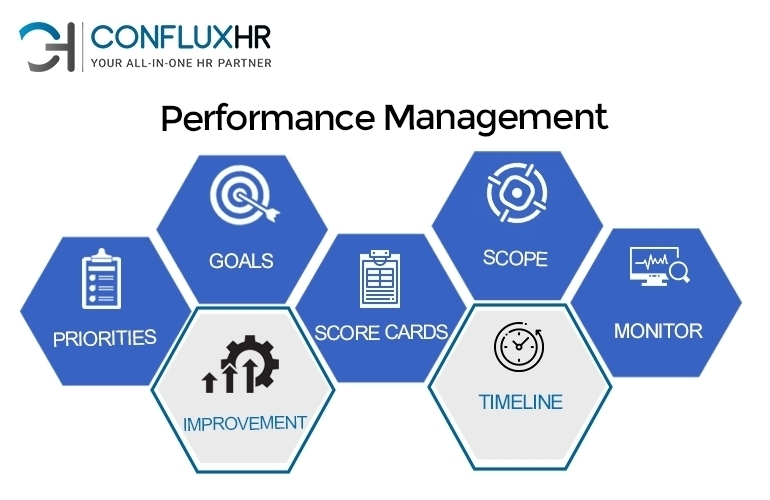It’s challenging to navigate the world of performance management. It is continuously changing. As a result, it is critical to have an efficient performance management system. Every year, there are new trends in performance management system, but unfortunately, too frequently, human resource departments need to correct them.
Employees are consequently left feeling defeated, uninspired, and disengaged. The weak performance of both teams and individual employees frustrates managers. Thankfully, businesses are starting to recognize the value of solid review systems and their associated advantages. An excellent performance management system is the first step in revitalizing and upgrading your current performance procedures.
The Essential Components of Effective Performance Management
Building an efficient framework for performance management involves a few fundamental components, such as:
Establishing objectives
You must correctly set goals. They must have significance and be transparent. The significance of these personal goals and how they advance organizational goals should be explained to employees in detail and timely by the leaders. When workers understand why their jobs matter, they will care far more about their roles and be more engaged.
Integrity in Conversation and Cooperation
The managers and leaders that employees work for should always be honest and upfront with them. They also want to develop positive relationships with their superiors and co-workers while maintaining real-time contact. An effective performance management system requires conversation and regular feedback, even when challenging or awkward, are required.
Employee Appreciation
Managers should prioritize employee recognition and reward in an employee management software. Employees should feel valued and appreciated for the task they complete and the effort they make. If rewarding employees is not a principal focus, this will negatively affect your voluntary turnover rate.
Honest feedback and regular reviews are required; the more frequently and precisely the feedback, the better the individual performance. That much is obvious. Employees desire regular feedback on their job, and the more knowledgeable they are about their performance, the better equipped they are to thrive and progress.
Growth of Personnel
An ambitious top performer will only commit to a long tenure at a company if they continue to learn and grow in their field. Employees value growth and development, and businesses also stand to gain when their staff members have higher levels of ability and competence.
Tragically, fewer than 14% of organisations (1) say they are satisfied with their current performance management approaches. Performance management practices frequently degenerate into ineffective and counterproductive activities if you are not careful.
The following are some of the possible scenarios:
Your System Is Not Just or Reliable
It frequently happens when more ongoing performance management is preferred over annual reviews. Given that an employee’s entire year of performance is summarized in one sitting, how can they be evaluated and treated fairly and accurately? Can managers recall every critical detail from even a year ago, and how will the employee receive the right amount of feedback, encouragement, support, and recognition? For instance, how can the annual evaluation be objective if there isn’t a previously established, reliable relationship between the employee and manager?
Managers who view employee performance evaluations as a “box-ticking” exercise
Often when managers undertake reviews and provide comments as a matter of course but only give the procedure lip regard. These managers might use an effective tool, like personal development targets, but only give employees the bare minimum of attention without examining and updating them. It is a major red flag of a dysfunctional performance management system. Your staff members will eventually check out if your supervisors do.
Still Using Paper and Pencil Systems
Nowadays, a business can expand so quickly that paper and pen procedures are no longer necessary. Technology is more accessible, less expensive, and easier to use than ever before. Companies must spend more on user-friendly, efficient technology to be genuinely productive.
Your system puts more emphasis on evaluation than coaching; one method to make employees fear performance conversations is to make them feel as though their manager at every interaction will evaluate them. Managers ought to encourage workers rather than criticize them. Instead of being authoritarian and impatient, they should be supportive and motivating.
The corporate world is becoming more agile, and quick-moving, so many organizations are adjusting their processes to define “near-term” targets every three months. To ensure that individual performance is in line with the organization’s overall strategy, the organisation’s goals and values should be incorporated into the performance management system.


